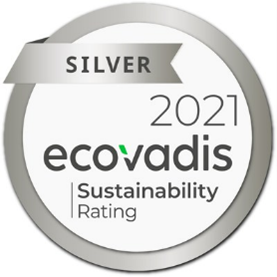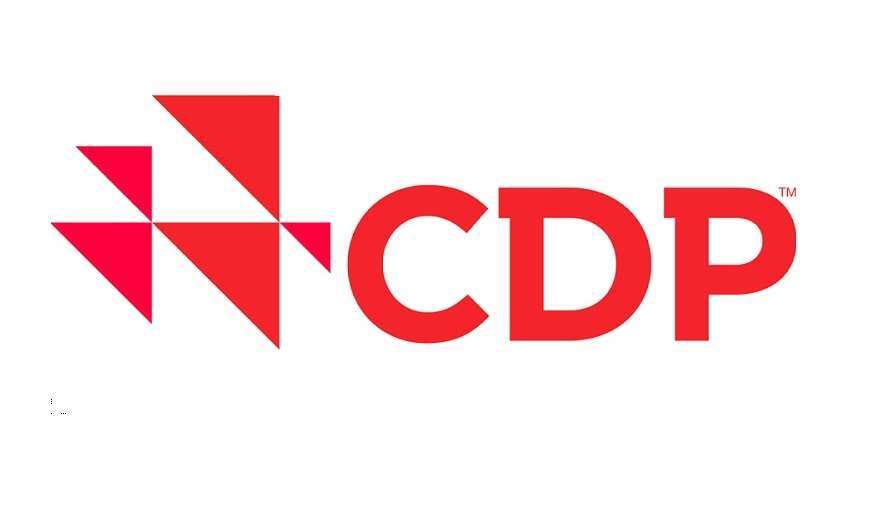Strategy & Approach
Strategy & Approach
8 minWe are committed to shaping a more sustainable industry and future. Sustainability is embedded at the core of our strategy and vision, and it is present in everything we do.
dormakaba strives to promote sustainable development along the value chain as part of our economic, environmental, and social responsibility toward current and future generations. We seek an open and transparent dialogue with stakeholders to define strategies and actions based on clear goals and continuous improvements. We adhere to the precautionary principle as the foundation of sustainability. Negative impacts on the environment and health should be avoided in advance to the greatest extent possible by all employees in all business activities. This approach is set out in our Code of Conduct, which outlines our values, principles, standards, and norms of behavior.
Sustainability is embedded in our strategy and vision
As part of our new company strategy Shape4Growth, dormakaba has committed to an industry-leading framework for sustainability with ambitious ESG targets. We share the belief that sustainability is core to the future of our industry, of the building industry in general and thus to our business model. With Shape4Growth, we have further integrated sustainability into our solutions, operations, and processes to better answer the expectations of our customers. We must do our part to reduce the carbon footprint of the buildings we supply, and we aim to do the same in our internal operations.

Materiality
Our material topics were defined in the course of a comprehensive materiality reassessment in FY 2020/21 and are valid for the years 2021–2027. We were able to identify ten topics that are the most relevant for our stakeholders and for those where we have the highest impact on sustainable development. Full details on the materiality process can be found in the Outro.
Our Sustainability Framework 2021–2027
Following the reassessment of our material topics, we have developed a sustainability framework in line with our most material issues, along three Pillars: People, Planet, and Partnerships. Within each Pillar, we have set clear sustainability targets that determine our sustainability-related efforts for the period 2021–2027.
Strategic targets
In line with this strategic approach, dormakaba has committed to work towards 31 sustainability goals during the current strategic period. As the targets were set in late 2021, only a part of the planned initiatives have started to be implemented, although we have reached important milestones in several of these. Below is a summary of the status of the targets as of 30 June 2022. You can read about these achievements in more detail in the related chapters of this report.

|
Material Topic |
|
Target |
|
Target Year |
|
Baseline FY 2020/21 |
|
Performance FY 2021/22 |
|
Notes |
|
Status |
|
Fair Employment |
|
Maintain our employee engagement score at or above the IBM Global Norm (71) |
|
2027 |
|
70* |
|
No change |
|
The next dormakaba dialogue is planned for FY 2022/23 |
|
p0 |
|
Training & Education |
|
Increase average training hours to 20 hours per employee |
|
2027 |
|
13 hr/FTE |
|
12 hr/FTE |
|
There were substantially fewer mandatory trainings on Compliance and Information Security in FY 2021/22 versus the previous year. |
|
p0 |
|
Diversity & Inclusion |
|
1 in 3 managers are women |
|
2027 |
|
19% |
|
20% |
|
|
|
p1 |
|
|
25% women in succession planning for senior management positions |
|
2027 |
|
14% |
|
No change |
|
The Nomination Committee of the Board of Directors had not yet confirmed the succession planning as at 30 June 2022. |
|
p0 |
|
|
Occupational Health & Safety |
|
Decrease the recordable work-related injury rate by 33% |
|
2027 |
|
1.4 |
|
1.5 |
|
|
|
p0 |
* Baseline FY 2019/20 in line with the latest dormakaba dialogue results

|
Material Topic |
|
Target |
|
Target Year |
|
Baseline FY 2020/21 |
|
Performance FY 2021/22 |
|
Notes |
|
Status |
|
Energy & Emissions |
|
Reduce operational emissions (Scope 1+2) 42% in line with a 1.5° future |
|
2030 |
|
74,770 tCO2e* |
|
68,625 tCO2e |
|
|
|
p2 |
|
|
Reduce value chain emissions (Scope 3) from purchased goods & services, and the use of sold products by 25% |
|
2030 |
|
1,124,936 tCO2e* |
|
1,132,000 tCO2e |
|
Although emissions from purchased goods and services have decreased, improvements in data collection systems - including in the precision of country-level sales figures - have led to an increase in Scope 3 emissions as a whole. |
|
p0 |
|
|
|
Become carbon neutral in our operations |
|
2030 |
|
74,770 tCO2e* |
|
68,625 tCO2e |
|
Carbon emissions from heating fuels, vehicle fuels, and purchased electricity are to be reduced by our own actions in line with our 1.5° commitment, and residual emissions will be offset through Gold Standard-certified projects starting in 2030 only. |
|
p2 |
|
|
|
Achieve net zero emissions |
|
Latest 2050 |
|
1,199,704 tCO2e* |
|
1,200,625 tCO2e |
|
|
|
p0 |
|
|
|
Have best-in-class energy efficiency for new products |
|
2023 |
|
- |
|
An industry benchmarking on energy efficiency for 16 representative product classes in partnership with external experts was commissioned, to set benchmarks for future product developments. |
|
|
|
p5 |
|
|
|
Reduce energy intensity of our operations by 25% |
|
2030 |
|
100.5 MWH/mCHF* |
|
92.2 MWH/mCHF |
|
|
|
p3 |
|
|
|
80% of purchased electricity is from green sources |
|
2030 |
|
45.5% |
|
46.4% |
|
|
|
p6 |
|
|
|
100% of fleet in Germany, France, and the UK is electric- or hydrogen-based |
|
2030 |
|
– |
|
1% |
|
|
|
p0 |
|
|
|
All manufacturing sites maintain energy management systems based on ISO 50001 |
|
2023 |
|
21%** |
|
67% |
|
|
|
p7 |
|
|
Circular Economy & Materials |
|
All new product developments and optimizations are covered by our circularity approach |
|
2023 |
|
– |
|
EcoDesign, Design for Repair, Disassembly & Recycling guidelines are being developed in conjunction with three new product developments in our Door Hardware, Electronic Access, and Data and Entrance Systems product clusters. |
|
The pilots will continue in FY 2022/23 and the resulting guidelines will be incorporated as part of global Product Development directives and processes. |
|
p3 |
|
|
We offer extended producer responsibility take-back schemes for all products and packaging in ten top sales countries |
|
2027 |
|
– |
|
- |
|
9 out of the 10 top selling countries will develop detailed four-year action plans for launching take-back programs and to evaluate local recycling companies for partnerships in FY 2022/23. |
|
p0 |
|
|
|
Zero fossil fuel-based plastic used in packaging |
|
2027 |
|
223 tons |
|
312 tons |
|
The launch of related initiatives is planned for FY 2023/24. |
|
p0 |
|
|
|
100% of paper, wood, and carton stems from Forest Stewardship Council-certified sources |
|
2027 |
|
– |
|
- |
|
Integrating requirements into specifications and packaging guidelines starts in FY 2022/23. |
|
p0 |
|
|
|
Double the total number of sustainability-related product declarations/certifications, including Cradle-to-Cradle and for recycled content |
|
2027 |
|
170 |
|
200 |
|
|
|
p2 |
|
|
|
Zero waste to landfill in operations |
|
2027 |
|
3,443 tons |
|
2,724 tons |
|
33 manufacturing sites will develop detailed Zero Waste to Landfill action plans in FY 2022/23. |
|
p0 |
* Baseline FY 2019/20 in line with Science Based Targets initiative validation
** Baseline FY 2019/20

|
Material Topic |
|
Target |
|
Target Year |
|
Baseline FY 2020/21 |
|
Performance FY 2021/22 |
|
Notes |
|
Status |
|
Supplier Sustainable Development |
|
Assess all high-risk suppliers for their sustainability management by a third party or off-board them for lack of participation |
|
2027 |
|
10% |
|
18.7% |
|
|
|
p2 |
|
|
At least 45% of our high-risk suppliers participate in our sustainability engagement program |
|
2027 |
|
10% |
|
18.7% |
|
|
|
p4 |
|
|
|
Close at least 80% of high-priority corrective actions of assessed suppliers |
|
2027 |
|
- |
|
52% |
|
|
|
p6 |
|
|
|
90% of assessed suppliers with priority findings have completed a sustainability training |
|
2027 |
|
- |
|
– |
|
The launch of related initiatives is planned for FY 2022/23. |
|
p0 |
|
|
|
Provide information regarding conflict minerals for high-risk suppliers |
|
2027 |
|
- |
|
- |
|
Developing process for Conflict Minerals Reporting Template distribution is planned to start in FY 2022/23. |
|
p0 |
|
|
Human Rights |
|
Reduce the risk of forced labor for migrant workers by providing ethical recruitment trainings for all our labor agents in sending and receiving countries |
|
2027 |
|
– |
|
– |
|
The launch of related initiatives is planned for FY 2023/24. |
|
p0 |
|
|
Support the right to water in communities where we manufacture by establishing water stewardship programs in areas of high water scarcity, with no absolute increase in water consumption and reducing water intensity by 28% |
|
2027 |
|
75,086 m3 absolute consumption and 25.5 L/hours worked* |
|
66,464 m3 absolute consumption and 20.7 L/hours worked* |
|
|
|
p7 |
|
|
|
Ensure supply chain traceability for minerals having high risk of child labor |
|
2027 |
|
– |
|
Cobalt traceability dialogues with key suppliers have been started in order to understand Tier 2+ supply chain characteristics. |
|
Developing process for Cobalt Reporting Template distribution is planned to start in FY 2022/23. |
|
p1 |
|
|
Customer Health & Safety |
|
Collaborate on health and safety training with subcontractors and installation partners |
|
2027 |
|
– |
|
- |
|
The launch of related initiatives is planned for FY 2023/24. |
|
p0 |
|
|
Collaborate on training and provide information materials on the safe operation of our products to all end users |
|
2027 |
|
– |
|
- |
|
The launch of related initiatives is planned for FY 2023/24. |
|
p0 |
|
|
|
At least one corrective action and/or one awareness training for each product-related injury |
|
2027 |
|
– |
|
- |
|
The launch of related initiatives is planned for FY 2023/24. |
|
p0 |
* Baseline FY 2019/20
Sustainability governance
Our Sustainability Charter defines the management framework required to achieve our sustainability vision. In FY 2021/22, the Charter was updated in line with our new corporate strategy and sustainability framework, and a new sustainability organization was defined. The most fundamental change to this is the establishment of four Expert Groups that are integrated into the overarching Global Sustainability Working Group: Sustainable Products, Supplier Sustainable Development, People and Environment, Health & Safety. Each sustainability target is allocated to a particular Expert Group with the most relevant job functions and business know-how. Their contribution is key to ensuring the successful implementation and development of strategic initiatives to achieve our sustainability targets.
An overview of the dormakaba sustainability organization is found below. Further duties, authorities and reporting channels for the various bodies are set out in the Sustainability Charter.
Sustainability organization
Stakeholder dialogue and partnerships
dormakaba attaches great importance to regular contact and ongoing dialogue with our stakeholders at both the local and global level. We consider the close involvement of our stakeholders to be an asset in our ongoing efforts and therefore pursue a goal of creating better mutual understanding, based on trust, to enhance our partnerships and collaboration. Examples of stakeholder dialogues include:
- Besides selected internal stakeholders, external stakeholders, including NGOs and human rights experts, were invited to provide input on our analysis of salient human rights issues (FY 2018/19).
- Sustainability stakeholder dialogues were held with representatives from the Group Sustainability Council and with external stakeholder groups including banking and investment partners, suppliers, customers and governmental bodies as part of our materiality assessment process (FY 2020/21).
- All employees were invited to give their opinion on the most important sustainability challenges that we should address. Over 2,000 employees participated, and the results formed an integral part of the development of our current sustainability strategy (FY 2020/21).
- Our Global Brand Tracking survey examines customer demand, and their perception of our performance. The survey included sustainability-related questions for the second time (FY 2021/22).
- The findings of in-depth interviews with various internal and external stakeholder groups shaped the development of the new Shape4Growth strategy (FY 2021/22).
- During a panel discussion with architects from well-known international architectural firms, we received positive validation of our work and the direction set regarding product sustainability (FY 2021/22).
|
Stakeholder |
|
Key topics and concerns |
|
Platforms |
|
Grievance mechanisms |
|
Employees |
|
Employment practices and benefits, occupational health and safety, sustainable business practices, environmentally safe production processes |
|
dormakaba dialogue survey, bilateral meetings with local Human Resources representatives, employee works councils or trade unions, safety committees |
|
Reporting channels defined in the Code of Conduct, open-door policies, grievance mechanisms in place as part of collective bargaining agreements, meetings with trade union representatives |
|
Investors |
|
Business performance and strategy, responsible business practices, ecoproducts, transparent reporting, as well as quantifiable objectives |
|
Anchor Shareholders Events, Capital Market Day, roadshows, analyst conferences, bilateral meetings, ESG rating questionnaires |
|
Interviews with Investor Relations and members of the Executive Committee upon request |
|
Architects, specifiers |
|
Product offering, product design and quality, trustworthiness and reliability, price level, innovation |
|
Annual brand tracking survey, trade shows and associations, customer service hotlines |
|
Customer complaint process |
|
Partners, installers, distributors, customers and end users |
|
Technical training and product specifications, product design and quality, trustworthiness and reliability, price level, sustainability demands for green building certifications |
|
Partner Days (conferences), in-house product training, annual brand tracking survey, trade associations, direct e-mail requests |
|
Customer complaint process |
|
Suppliers |
|
Qualification process |
|
Bilateral meetings, surveys, on-site audits |
|
Third party whistleblowing hotline |
|
Local government |
|
Employment, health, safety, and environmental compliance |
|
Bilateral meetings |
|
Direct contact |
Partnerships
External acknowledgments

dormakaba has been awarded a silver medal for our sustainability management by the assessment firm EcoVadis, placing the company in the top 9% of all assessed companies in the assigned sector. Our company is especially strong in the areas of labor and human rights (top 9%) and sustainable procurement (top 6%) compared to other companies in our industry.

dormakaba received an encouraging score of B for the 2021 Carbon Disclosure Project (CDP) report. CDP requests thousands of companies to report on climate change on behalf of over 800 investors with assets of USD 100 trillion. The B rating reflects the strong progress dormakaba shows on climate change and carbon emissions management. Our 2020 CDP score is higher than the average score in our assigned sector (B-) as well as the CDP worldwide average (B-).

dormakaba has improved its MSCI rating from A to AA, which puts us among the leaders in our industry. The MSCI ESG Rating aims to measure a company’s management of financially relevant ESG risks and opportunities.